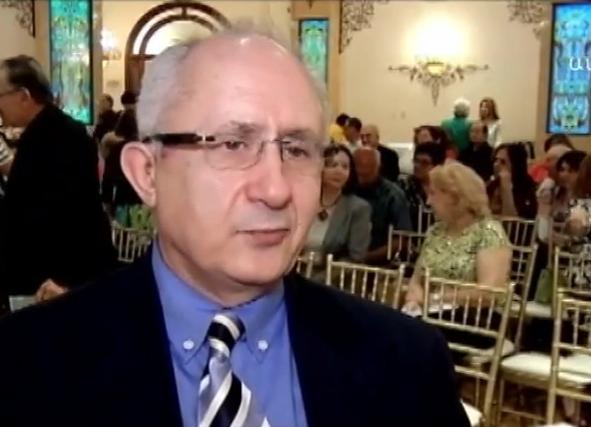avec Taner Akçam
photo : domaine public
One popular view of Cemal Pasha among non-historians has emphasized his role as one of the “Three Pashas” (along
with Talat Pasha and Enver Pasha) who were largely responsible for the deaths of 1.5 million Armenians in the
Ottoman Empire during the Armenian Genocide (1914-1923). Yet in scholarly writings, many historians have argued
that, although Cemal Pasha was very harsh in his treatment of Arabs and Jews, he opposed the annihilationist
policies directed toward the Armenians. In fact, the prevailing view has been that Cemal Pasha not only tried to treat
Armenians well but actively worked to rescue them, to the extent that his efforts opened a serious rift between him
and the Unionist government in Istanbul. The testimonies of some survivors of the Armenian Genocide appear on
the surface to support this latter view. For example, two Genocide survivors are quoted as follows: “Talat sent Cemal
the [following] order…from Istanbul: Not even a dog should be left on the streets. In other words, annihilate the
Armenians; but [Cemal] acted cleverly and killed all the stray dogs; As for the Armenians, [he ordered] ‘Change your
names as if you’ve become [Muslim] Turks… I will send a telegram [to Istanbul] stating that ‘No Armenians remain
here, all have already converted, and there are no Armenians left to kill.’”
According to new research by Professor Akçam, neither oft-repeated view of Cemal Pasha is entirely accurate. There
were no major disagreements between the authorities in Istanbul and Cemal Pasha over Armenian policy; rather,
they were in nearly complete accord. Indeed, in many aspects the latter’s policies can be seen as more radical than
those of his collaborators in Istanbul. In his talk, Professor Akçam will present a reevaluation of Cemal Pasha’s role in
the Armenian Genocide in light of recently discovered Ottoman documents. Professor Ronald Grigor Suny will
provide commentary on this work, followed by Q&A.
ABSTRACT
Taner Akçam, Ph.D.
Professor of History
Kaloosdian and Mugar Chair in Modern
Armenian History and Genocide
Strassler Center for Holocaust and
Genocide Studies, Clark University
Lecturer
Ronald G. Suny, Ph.D.
William H. Sewell, Jr. Distinguished
University Professor of History at the
University of Michigan and Emeritus
Professor of Political Science and History at
the University of Chicago
Discussant
CO-SPONSORS
(Photos provided by Professors Akçam and Suny)


